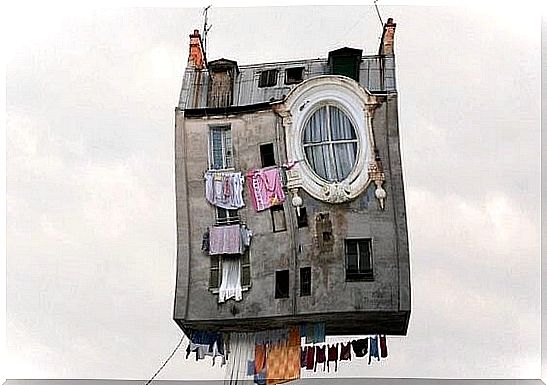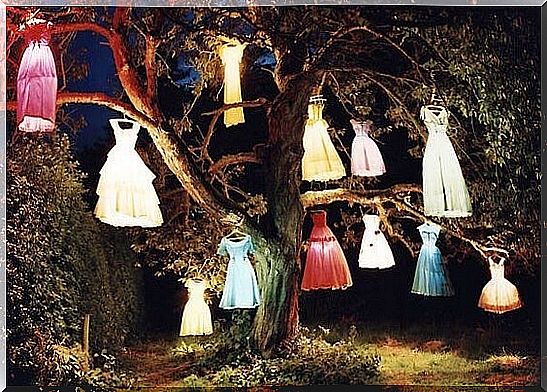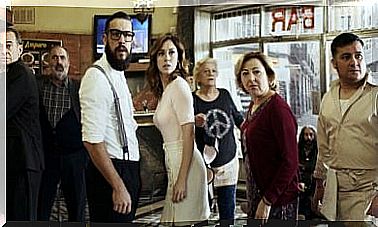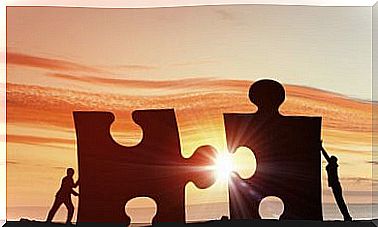3 Psychological Poisons That We Should Keep Away From Our Homes

A healthy home is perhaps one of the factors that contributes the most to making us psychologically strong. The opposite also happens: a sick home makes us much more vulnerable and prone to illness, in mind and body.
The word home does not refer only to the typical family, with a father, mother, a couple of children and a dog. Home is where we live and we can share it with siblings , friends, parents, or sometimes with a pet and occasional visitors. In this case, we are going to refer to those homes in which there is coexistence, not to single-person households.
The quality of the bonds that are built in that home are decisive for our emotional health. Whenever there is coexistence, there is also conflict. But in the home, in particular, we should not allow certain behaviors to enter that can become real psychological poisons. We highlight three of those toxic behaviors that should never enter the door of our house, much less stay in it.
The screams turn a home into hell
The downside of yelling is that they start out being exceptional, but tolerance to them becomes more flexible and in the end they become a habit; more if someone reinforces them. It happens without you noticing. Today you scream because you despair that they do not understand what you are saying and tomorrow you scream because they understood you too much, or because if you do not scream nobody listens to you (or so you think or someone thinks).

In that gesture of shouting, which seems more annoying than offensive, a poisonous germ begins to hatch, that of violence. Screaming turns a normal conflict into a psychologically damaging situation. They are an act that seeks to impose power. A way to pervert the raison d’être of words.
Talking softly can also become a magnificent habit. Not yelling and not allowing them to yell at you strengthens coexistence and helps you increase your esteem, your respect and your self-control. “You don’t shout here” should be a basic slogan in every home.
Not separating personal spaces: a big mistake
A good part of a healthy coexistence consists of knowing how to respect the spaces of others. With the term “spaces” we not only refer to the physical places that belong to each one, but that is where it begins.

There must be absolute respect for the belongings of others and for the places that are part of your personal environment. Likewise, it is very important that each one delimits those borders and makes others aware of them. There will even be some that can and should be negotiated: now is the time to do it. Each one must have a personal space and be autonomous in it, trusting that the others will not cross that border.
By respecting physical spaces, you also learn to respect the privacy of others. No matter how much they live with others, each one has their own life. And you should only enter that psychological space of others if there is an invitation or permission to do so. Or if, objectively speaking, that privacy involves the other in some way. Each one has the right to their silences, to their secrets, to their convictions.
Reloading tasks on others, toxic behavior
Every home involves a series of tasks that may not be very pleasant, but that must be done. It’s about household activities. The home starts operating and maintenance mechanisms. Electricity, water supply, appliances, etc. should be working. Cleaning and maintenance of the physical space and its components must be done.

Coexistence is much healthier when tasks are distributed in a consensual way. Sometimes it is possible to implement a very equitable organization of these activities, but it is a task that must be done. And that is precisely what consensus is for, to reasonably distribute the tasks that the owner needs. In any case, more than distributing it, the essential thing is to comply with it.
It is essential that all members of the household have a responsibility towards this. It is a condition that promotes solidarity, cooperation and respect. It makes life easier for everyone and gives value to everyone. Likewise, it strengthens the idea that in any group there are duties that have to be fulfilled, for their own benefit and that of others.
Sometimes the home is compared to a temple and this is not free. If it is honored, it is sure to become an inspiring force that is projected into all other social spaces in which we interact. If neglected or degraded, it can become the first link in a great chain of personal failure.
Images courtesy of Laurent Chehere









